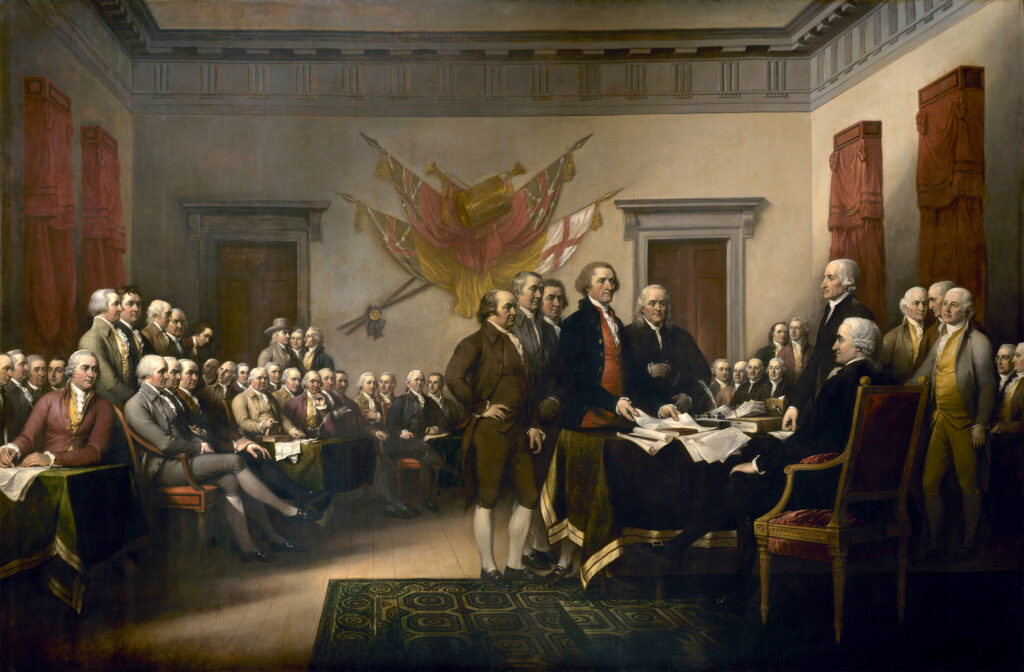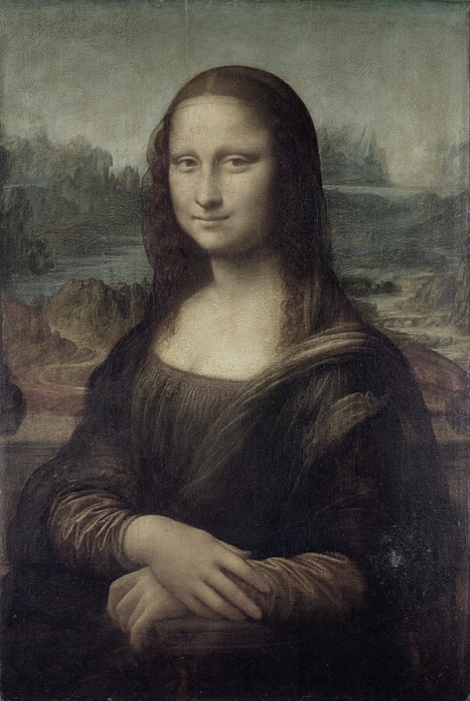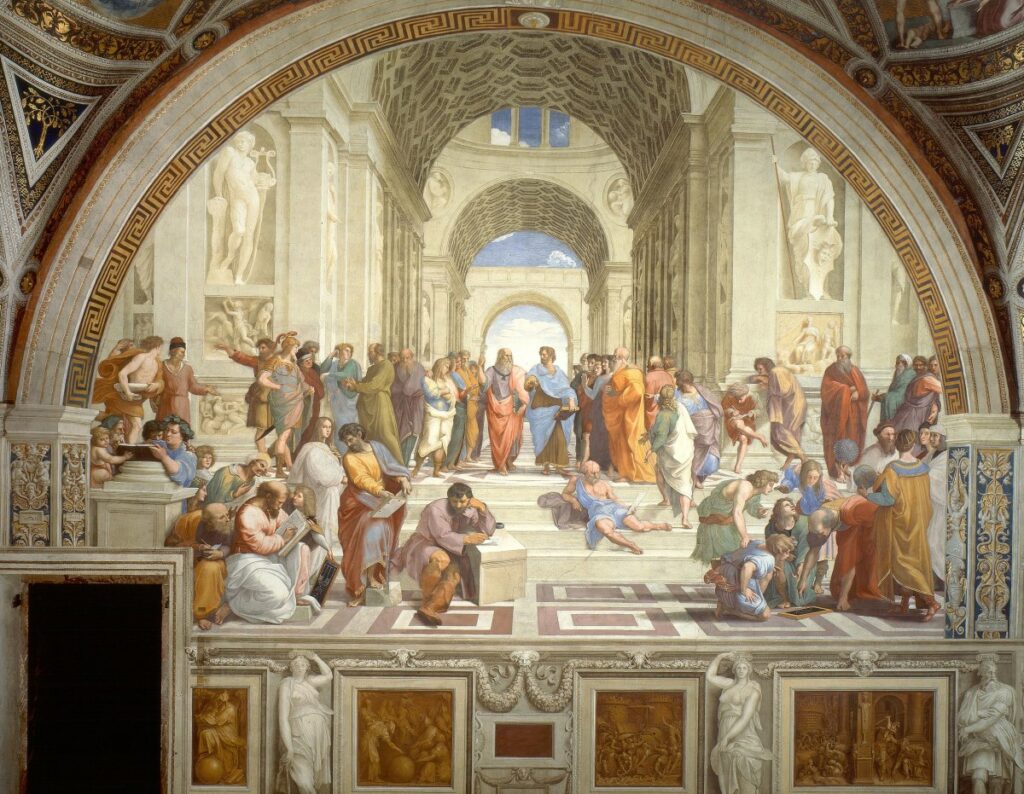FREE SPIRITS
Charles Kocian First Post
Without Leonardo Da Vinci, without the Renaissance, the U.S. Declaration of Independence would not have existed. Although the Founding Fathers arouse admiration, these heroes of freedom were inconsistent in answering the moral question: What is good? Is good he who wins or is good he who loses?
The Achilles’ heel of this valuable document is the omission of the premises that sustain the inalienable rights to life, liberty and the pursuit of happiness. If they are omitted it is not possible to validate them, therefore, neither can be validated the moral basis on which the institutions of the USA are sustained. This omission made it possible for Marx ideology to infiltrate the collective soul of this, apparently great nation, whose collapse seems inevitable. Therefore, it is imperative to identify and validate them to purge what fouls the spirit of freedom. We will only diagnose the first part of the text that says:
“We hold these truths evident: that all men are created equal; that they are endowed by their Creator with certain inalienable rights; that among these are life, freedom and the pursuit of happiness… “

U.S.A. Declaration of Independence in 1776.
We take for granted that these are irrefutable truths, but what premises did these great men omit? Are they valid? Let us go in parts. First, all men are born unequal, as they born with different luck, social class and genetic characteristics. Secondly, Darwin demonstrated that all living beings are created through natural selection, not by any Creator. Thirdly, natural selection does not endow man with inalienable rights, except its right to compete. Therefore, neither the right to life and liberty exist except for men who choose to compete in a free society.
Recapitulating, men are created unequal, by natural selection and its only inalienable right is to compete, that is, to pursue its own happiness. But the right to life, liberty, property and free speech exist only for men who believe in reciprocity, because they realize that the division of labor produces a society of broad human free cooperation, words with which Friedrich Hayek, one of the fathers of the Austrian school of economics, defined Capitalism.
Capitalism is a society of broad human free cooperation because, like sports, it encourages free competition between individuals, fosters the joy of the expectation of winning and celebrates the pride of having won. Although capital is in few hands, and they don’t play always by the rules, is an ideal that encourages individual development. It pushes people to become the champions of themselves, but although some win and others lose, that is not a problem, because you can try again and again to become better and better and more and more creative to serve others producing better products at better prices. But, the morals of the losers inverts the moral values with the double objective of alleviating their resentment and making the winners feel guilty. It was that capitalist-guilt that allowed Collectivists to raise taxes on the rich to narrow the inequality gap? It was that capitalist-guilt that allowed Collectivists to create Keynesian central banks to print fake money and destroy the economy with inflation? Why not metalic gold standard?
In what type of society do we want to live? In the freedom of a pragmatic fair Capitalism or the bondage of Collectivism? In a Keynes or Hayek economy? What model are we going to follow? Hercules or Jesus? We all agree with Jesus when he comdemns the lack of empathy of psycopaths and sociopaths. Indeed, Jesus words in the Bible reads, “it is easier for a camel to go through the eye of a needle than for a rich man to enter the Kingdom of Heaven”. But, although not all richs are lack of empathy, it is a fact that power corrupts. But, is power or lack of reason what corrupts? Is Jesus a model of empathy, reason or altruism? No, no and no! God is dead! Nietzsche exclaims. But, can God exist and don’t exist at the same time? Long Live the State! Marx exclaims. Really? Is cultural Marxism replacing God? If true, what are the premises behind? The Kant moral imperative? Plato’s primacy of consciousness? If culture molds our minds what molds culture? Philosophy? Propaganda? Religion? It happens randomly or is design by the rulers? And who rule the rulers? Philosophy? What kind of philosophy? Can a wrong philosophy steal reason and logic? Can man, the rational-animal, be a man without logic? What is reason? Do we all live in the same pysical space? If we all live in the same planet and perceive with the same senses, are there absolute truths? Gravity exists? The Periodic Table is absolute? Can the irrational build a just society? Can reason build a New Renaissance?
We explore the answers of this kind of questions in our philosophy game, essay, novels and this posts as well.


